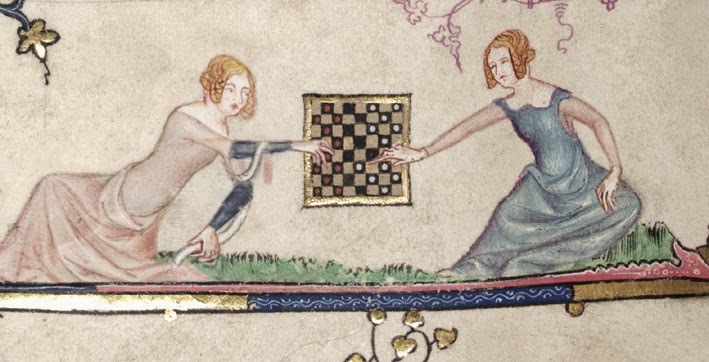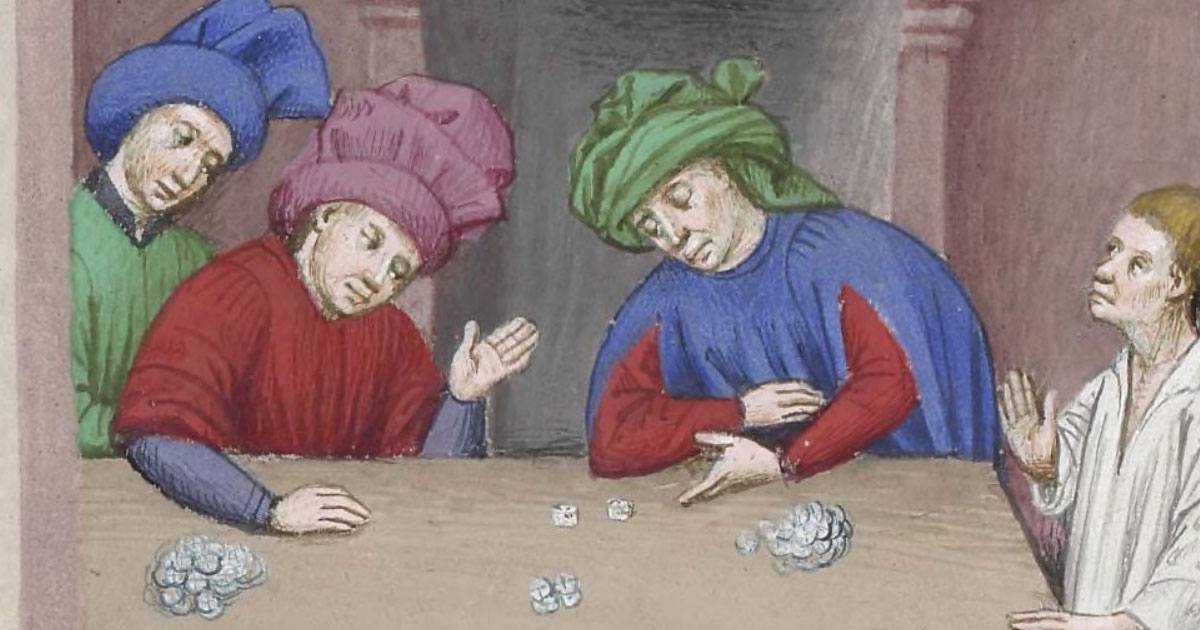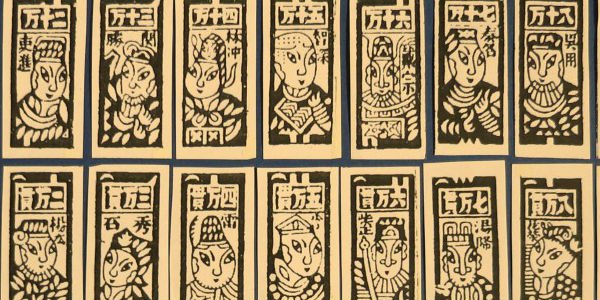Gambling In Medieval Times
Gambling was known to the ancient world. Games of chance were an appreciated pastime, often turning into addiction, among the Greeks – Herodotus relates that the Lydians supposedly invented some games (History 1:94); among the Romans, who are known to have bet heavily on chariot races; and among the Teutons, of whose gambling habits Tacitus states that in their less sober moments they even gambled themselves into slavery (Germany, 24). While the Hebrews were also acquainted with gambling (Judg. 14), it was only from mishnaic days onward that the rabbis took a definitive attitude toward gambling.
- Gambling In Medieval Times Middle Ages
- Gambling In Medieval Times Timeline
- Gambling In Medieval Times Crossword
- Gambling In Medieval Times Crossword Puzzle
Professional and Compulsive Gambling
Professional gambling in any shape or form, whether among Jews or non-Jews, was severely frowned upon. The professional gambler was considered a parasite who was engaged in a useless endeavor and contributed nothing to better the world. Some rabbis went so far as to declare the professional gambler a robber whom the Mishnah (Sanh. 3:3) disqualified from giving testimony; he was looked upon as a spineless wastrel who, instead of engaging in the study of Torah or in the pursuit of an honest livelihood (Maim., Comm. to Mishnah, Sanh. 3:3), frittered his time and efforts away on a demeaning occupation and unseemly conduct (Rabban (ed. 1920), 224d; Mordekhai, Sanh. nos. 690, 695).
The rabbis recognized the inability of the compulsive gambler to control his passion for the game (Shiltei ha-Gibborim, Sheb. 756), considered him a moral weakling, and consequently dealt with him severely. One medieval rabbi advised: 'Do not show pity to the gambler who pleads 'pity me in order that I may not be shamed and disgraced by him who has won a gulden.' Better he be disgraced…' (Judah he-Ḥasid, Sefer Ḥasidim, ed. by R. Margaliot (1957), no. 1026; cf. no. 400). So vehement was his opposition to the gambler that if the latter were to lose his money and require assistance from charity, it was to be denied to him.
Public calamities that befell the Jewish community were often considered the consequence of, and the punishment for, excessive gambling. In 1576, in Cremona, three scholars proposed a ban on gambling after a pestilence had abated. They maintained that the popular passion to gamble was the main source of all calamities that had befallen the community. A similar view had been expressed earlier by Judah Katzenellenbogen (Isaac Lampronti, Paḥad Yiẓḥak, 3 (Venice, 1798), 54a).
Games of chance, bone dice and cubic dice were popularlater on cards and some lotteries evolved. There is a great book by UNLV Professor David Schwartz that goes deep into the history of gambling. Also, the Gambler's Bookstore in Las Vegas is a w. And in early medieval times, dice were often “unbalanced” in the arrangement of numbers, where 1 appears opposite 2, 3 opposite 4, and 5 opposite 6 Gamblers may have seen dice throws as no longer determined by fate, but instead as randomizing objects governed by chance.”. In medieval times, many of the games children played mimicked what they saw at festivals or what they observed in battle training. Games helped them practice accuracy, agility, balance, and strategy. Walking on stilts would have been something they observed acrobats and other performers doing at Medieval Faires. Medieval Men Gambling Most of the men in the town would either play dice or chess to gamble. They were only allowed to gamble in either the fairs or the markets, but most men did it anywhere they wouldn’t get caught (Duby 167). The dice that the people used were not just the typical square cubes like today; they were all different shapes. Believed by many to have been brought back to Europe from the Middle East and India by the crusading knights, the game of chess in medieval times was played with a set of pieces carved from bone or ivory. Medieval knights are also believed to have enjoyed playing dice and gambling on the outcome.
Effects of Gambling
Community leaders, keenly aware of the painful and destructive effects of gambling upon an individual's character, meted out severe punishment. Gambling debts could not be collected through the Jewish courts (Resp. Rashba, vol. 7, no. 445). The gambler was often placed under ban, dismissed from the burial society (ibid., nos. 244, 270; Resp. Rosh 13:12), at times prohibited from holding his wedding in the synagogue courtyard (Loewenstein, in JJLG, 8 (1910), 184f.), not called to the Torah (Finkelstein, Middle Ages, 282–95), etc. Family life was also disrupted by gambling habits, and there is much evidence readily available to show how difficult relationships were between gamblers and their wives (Resp. Rashba, vol. 2, nos. 35, 286; vol. 7, no. 501; Rosh, resp. 82:2, inter alia). Women refused to live with such husbands; wife-beating and drinking were common (Zikhron Yehudah no. 71; responsa Maharyu no. 135) and the education of children was jeopardized (Rosh, resp. 82:2). Repelled by the conditions under which they were forced to live, gamblers' wives often sought divorce. The gambler's desertion of his family was not an uncommon occurrence. One moralist even suggested that women should join their husbands in their acts of gambling in order to save their marriages (Moses of Jerusalem (Moses Henochs), Brant-Shpigel, ch. 10).
Gambling was denounced not only by Jewish law and by Jewish moralists, but its evils and terrible consequences were warned against by popular folk singers, in colloquial expressions, and in proverbs. 'Gambling poems,' describing the sorrow of a home where the man gambles, speak pitifully of the mental anguish of the gambler's 'widow,' the hidden tears, and the neglect of the children.

Curbs on Gambling
Jewish writings mention many gamblers who made conscious efforts to curb their passion and activities. A common practice among them was to take an oath not to indulge in games of chance, although this usually resulted in a double violation: gambling and breaking a vow. The vows varied: some gamblers set a time limit to their vows; others excluded specific days or special occasions; while still others only refrained from placing monetary stakes, but played, for example, for stakes of fruit (Resp. Rashba, vol. 3, no. 305; Maharshal, resp. no. 185). Rabbis discouraged hasty vows, realizing that these did not lessen the lure of games of chance.
Exemptions
Communal restrictions to suppress gambling were often enacted; the frequency of these enactments, however, shows how futile the prohibitions were and how popular the games. Taking into consideration the attraction of games and gambling, the enactments were flexible: on many festive occasions (e.g., Ḥanukkah, Purim, the intermediary days of Passover and Sukkot, and the New Moon) the restrictions were lifted (Israel Bruna, resp. no. 136). Special family occasions also received communal dispensation for gambling (Finkelstein, Middle Ages, 228–42, 284–91). In general, however, the prohibitions were enforced and accompanied by severe penalties: excommunication and flagellation were commonly meted out to transgressors (Resp. Rashba, vol. 7, nos. 244, 270); fines were imposed and honorary functions within the synagogue withheld.
Types of Games of Chance
The medieval gambler was enticed by all sorts of games. Dice were known from ancient times, and games such as 'odds or evens' played with pebbles, knucklebones, and bowling were also quite old. Games with nuts, although often played by children, were also a pastime for the gambler (Haggahot Mordekhai, Sanh. nos. 722–3; Resp. Maharam of Rothenburg, ed. Prague, no. 94). Not until the 15th century did cards capture the fancy of the Jewish masses (I. Abrahams, Jewish Lifein the Middle Ages (19322), 415ff.). Tennis, popular among the Jews of Italy during the 16th century, was, just as chess, not merely played as a pastime but enormous stakes were wagered upon the outcome of such matches (Henderson, in JQR, 26 (1935/36), 5; for cards and chess see *Games). By the 18th century, lotteries were very popular. The different types of gambling were not universal; each country had its own fads and favorite games.

Many authorities felt that it was permissible to indulge in games of chance on occasions (Mordekhai, Sanh. 690f.). Gambling, however, carried with it a stigma; but while public opinion looked down upon it, all the private and communal efforts to stem the tide of gambling did not stop Jews from indulging frequently. One scholar even urged the abolition of all decrees against gambling since men could not withstand such temptation (Mordekhai, Shev. 787).
Synagogue Gambling
Gaming in the synagogue was not uncommon; a sharp contrast was drawn, however, between the usual forms of gambling and cases where the primary motive was not personal gain. A multitude of responsa cite instances where the winnings at games of chance were not considered fruits of sin (e.g., Resp. Maharam of Rothenburg, ed. Prague, no. 493). One of the clearest statements was made by Benjamin *Slonik who differentiated between gambling for private gain and that in which the winnings, even if only in part, went to charity. He saw no violation in the latter case and demanded full payment of gambling debts to charity. There were many instances where the rabbis and communities joined in games of chance. One rabbi ruled that he who wins at a lottery should pronounce the blessing She-Heḥeyanu; should one win together with a
These findings might have bearing on the modern controversy over congregationally sponsored bingo and card games organized to raise funds to meet the tremendous budgets of the synagogues. Jewish history and rabbinic literature shows that such methods are not new. Synagogues and communities have indulged in similar games in the past, and the revenues have been used to meet their financial obligations. Rabbis not only did not frown upon such acts but frequently encouraged them. The *United Synagogue of America at successive conventions has, however, ruled that bingo is a form of fund-raising not to be permitted by their congregations, the opinion being that it is not in keeping with the spirit of Judaism.
BIBLIOGRAPHY:
L. Loew, Die Lebensalter in der juedischen Literatur (1875), 323–37; V. Kurrein, in: MGWJ, 66 (1922), 203–11; I. Rivkind, in: Tarbiz, 4 (1932/33), 366–76; idem, in: Horeb, 1 (1934), 82–91; idem, Der Kamf kegen Azartshpilen bay Yidn (1946); I. Jakobovits, Jewish Law Faces Modern Problems (1965), 109–12; L. Landman, in: JQR, 57 (1966/67), 298–318; 58 (1967/68), 34–62; idem, in: Tradition, 10:1 (1968/69), 75–86; I. Abrahams, Jewish Life in the Middle Ages (19322), 397–422; ET, 2 (1949), 113; 5 (1953), 520–2; J. Bazak, in: Ha-Peraklit, 16 (1960), 47–60; idem, in: Sinai, 48 (1961), 111–27. ADD. BIBLIOGRAPHY: M. Elon, Ha-Mishpat ha-Ivri (1988), 1:193f, 576, 658, 665; idem, Jewish Law (1994), 1:218f.; 2:710, 814, 822; M. Elon and B. Lifshitz, Mafte'ah ha-She'elot ve-ha-Teshuvot shel Ḥakhmei Sefarad u-Ẓefon Afrikah (legal digest), 1 (1986), 15; B. Lifshitz and E. Shohetman, Mafte'aḥ ha-She'elot ve-ha-Teshuvot shel Ḥakhmei Ashkenaz, Ẓarefat ve-Italyah (legal digest) (1997), 13; Sh. Warhaftig, Dinei Ḥozim be-Mishpat Ivri (5735 – 1975), 212–31; idem, 'The Contract Involved in Lotteries and Gambling According to Jewish Law,' in: Sinai, 71 (5732 – 1972), 229–40; B. Lipschitz, Asmakhta – Ḥiyyuv ve-Kinyan be-Mishpat ha-Ivri (1988), 81–83; A.C. Shapira, 'Purchasing Lottery Tickets,' in: Teḥumin, 5 (1984), 301–2; Y. Cohen, 'A Married Woman's Winning the Lottery,' in: Teḥumin, 5 (1984), 303–14.
Sources:Encyclopaedia Judaica. © 2008 The Gale Group. All Rights Reserved.
Gambling In Medieval Times Middle Ages
Here's the thing: medieval punishments may seem completely bonkers, but when you catch sight of the laws they were trying to punish, they make a certain sense. The medieval European world of crime and punishment was radically different to ours — for one, there were no policemen, so if you wanted somebody caught you had to raise the 'hue and cry' and hope everybody dropped their stuff and ran after them — and laws controlled everything from moral behavior to clothing and death. But even in that environment, some crazy medieval laws stand out for their sheer ridiculousness. You could be arrested for stealing a whale? What?!
Medieval Europe is hardly alone in the strange-laws department. And many of the laws make sense, once you put them into context and realize what lay behind them — a fear of heathens and their pagan mince pies, for example, or wanting to avoid your house being burned down by a football-playing mob. Just because they seem to be coherent, though, doesn't mean they're any less funny.

Most of these are, thankfully, no longer in existence, and won't apply in a court of law. May you wear sables tipped with gold and play tennis indoors all year round in peace.
1. Playing Soccer

OK, this one's fair enough — soccer wasn't exactly what we'd call a 'civilized' game back then. Forget David Beckham delicately kicking a ball: this was essentially war, and when it was played in populated areas it caused complete havoc, a lot of property destruction, and even deaths. It was completely outlawed in England in 1314.
2. Dying In The Houses Of Parliament
How on earth this one, which is actually still a law in the United Kingdom, has ever been enforced remains unclear. (A poll in 2007 rated it one of the silliest laws in history.) Technically, it's more about decorum than disturbing the peace with a sudden flop during a speech, though. People who die in the Houses of Parliament are technically entitled to a state funeral, so the law's in place to stop people bringing in dying relatives to get them televised funeral rights.
3. Eating Mince Pies On Christmas Day
This wasn't strictly medieval; it was brought in by Thomas Cromwell as part of a series of laws about destroying 'pagan' customs in England. It was booted out by Charles II, thank goodness, so British people can still go around eating strange little pies wearing Santa hats all they like.
4. Getting Married Without Your Master's Permission

A terrible law that indicates just how miserable it was to be on the lower end of the social ladder, you could get into severe trouble if you were a peasant working for a landowner, and got married without asking him first. It gets worse: if you were a woman and your husband died, your landowner-in-charge could force you to choose another husband (and pick one for you) within a small amount of time. No cooperation? Punishment.
5. Stealing A Dead Whale
This one makes a bit more sense when you realize that the medieval palate included basically everything, from porpoise to beaver. And whale, apparently, was on the menu — but only for the king and queen. Whales are 'royal fish,' and when they wash up they automatically become the property of the royals in charge — though the head is the king's and the tail is the queen's.
6. Not Washing Your Sheep
In a case in the 1200s recorded by Nathan Belofsky in The Book Of Strange And Curious Legal Oddities, an entire village, serfs and otherwise, was punished for 'failing to wash the lord's sheep'. Presumably there was a story behind that, but nobody left any details. Poor sheep.
Gambling In Medieval Times Timeline
7. Not Turning Up To Court If You Found A Dead Body
Gambling In Medieval Times Crossword
This dates back to 1241, but probably held true a lot earlier. If you found a dead body you were classified as the 'first finder' — and, in those days without police officers or people to gather evidence, you were expected to turn up to court to tell people about it. If you didn't, you didn't just get in trouble — so did the entire village where the body was found.
8. Being An Innocent Dude At A Riot
Gambling In Medieval Times Crossword Puzzle
Rioting just sort of happened in medieval Europe. It was only when things got sticky and somebody was killed, according to Belofsky, that the law got involved. If a murderer got away in a rioting crowd, the authorities were perfectly entitled to pick seven men from the surrounding area and put them through a variety of 'tests' to determine their guilt. Said tests, in case you were wondering, didn't have anything to do with what you could testify you'd actually been doing at the time.
9. Playing Tennis (If You Were Poor)
It was legally forbidden, by a law of 1495, for young men who weren't nobles — working boys like apprentices and servants — to play tennis. It was thought to be distracting and to encourage gambling. The laws applied year-round, except at Christmas, and even then, they could only play it indoors, at their master's house.
10. Wearing Sables With Heads Made Out Of Jewels
This was part of the sumptuary laws of Italy in the 1500s, which were designed to reduce conspicuous consumption by restricting who could wear what, by class and income. If you were incredibly rich you could wear whatever you damn well liked, but if you weren't, lord help you if they caught you wearing a zibellino, a dead sable with its heads and feet covered in jewels. Apparently, this disgusting thing was enough of a trend to merit its own law.
Images: Wikimedia Commons